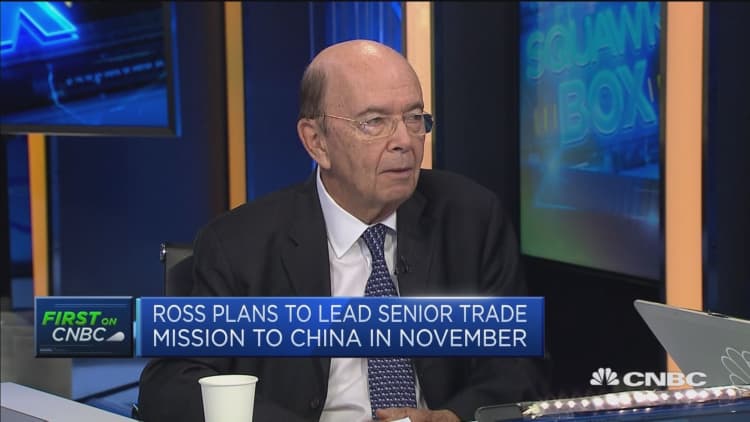
U.S. companies are concerned about the Trump administration's shift to focus on bilateral trade deals, rather than multilateral ones, said Tara Joseph, president of the American Chamber of Commerce in Hong Kong.
"Individual deals, bilateral deals could actually take a lot of time to complete," she told CNBC's "Squawk Box" on Thursday.
President Donald Trump has expressed a preference for bilateral trade agreements, over multi-lateral ones, claiming he can negotiate better deals that way.
AmCham had supported the Trans-Pacific Partnership (TPP) deal, which had originally included 12 nations, but Trump pulled the U.S. out of the mega-free trade deal early in his administration.
"With that blown out of the water, we would like to see what sort of trade framework is going to be created," said Joseph said.

Companies "need to operate in Asia in an increasingly competitive region. If you have to go across borders to get trade done, how are you going to do it in a region that has so many different regulations, so many different borders and so many different countries," she said of the concerns of AmCham members. AmCham is non-partisan.
"This is a real concern at the moment. Companies are actually just trying to get the job done and they do need U.S. government help to just deal with some of the regulatory issues," Joseph added.
The remaining 11 nations in the TPP have been working toward proceeding with a deal excluding the U.S.
Joseph's comments come as Wilbur Ross, the U.S. commerce secretary, tours Asia, stopping at China, Hong Kong, Thailand and Laos. Josephs called Ross' trip an encouraging signal of continued U.S. interest in the region.
There have been concerns the U.S. was becoming isolationist after Trump abandoned the TPP, a notion Ross dismissed as "fiction" propagated by the media in an interview with CNBC on Wednesday.

